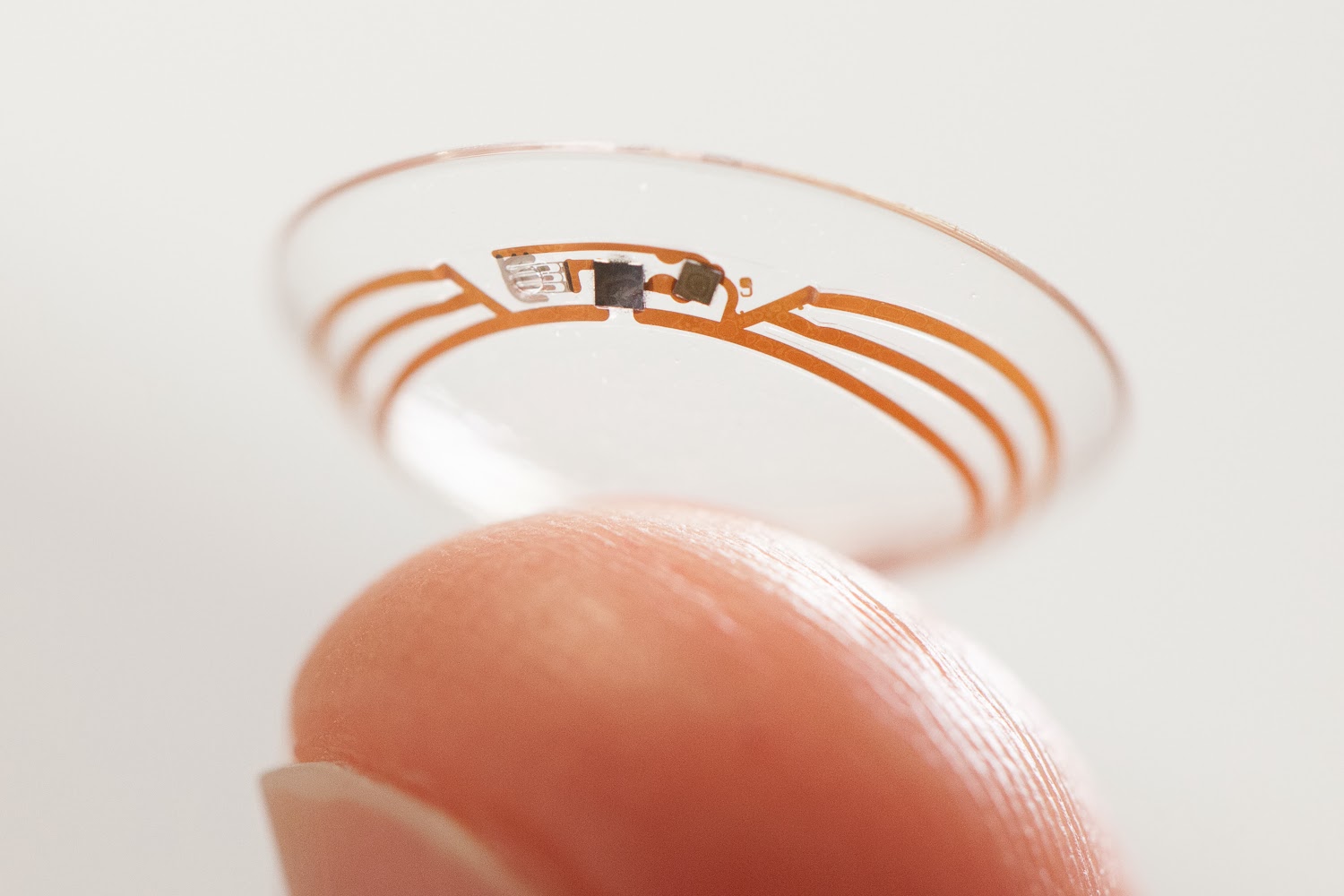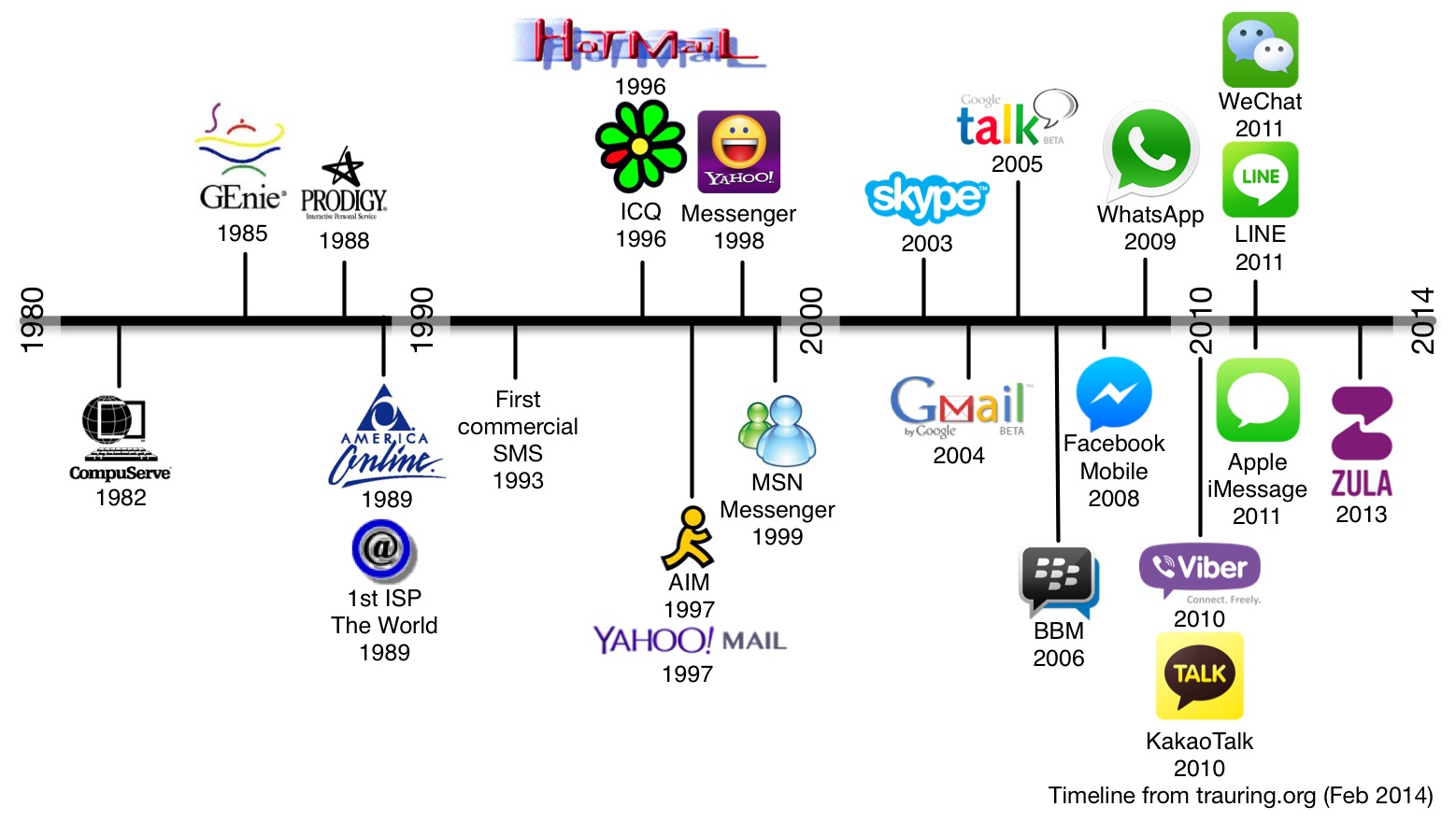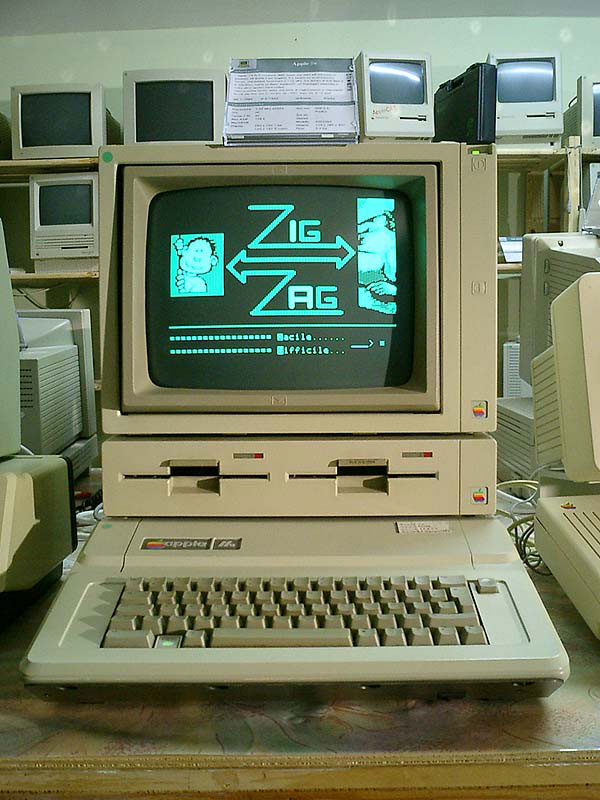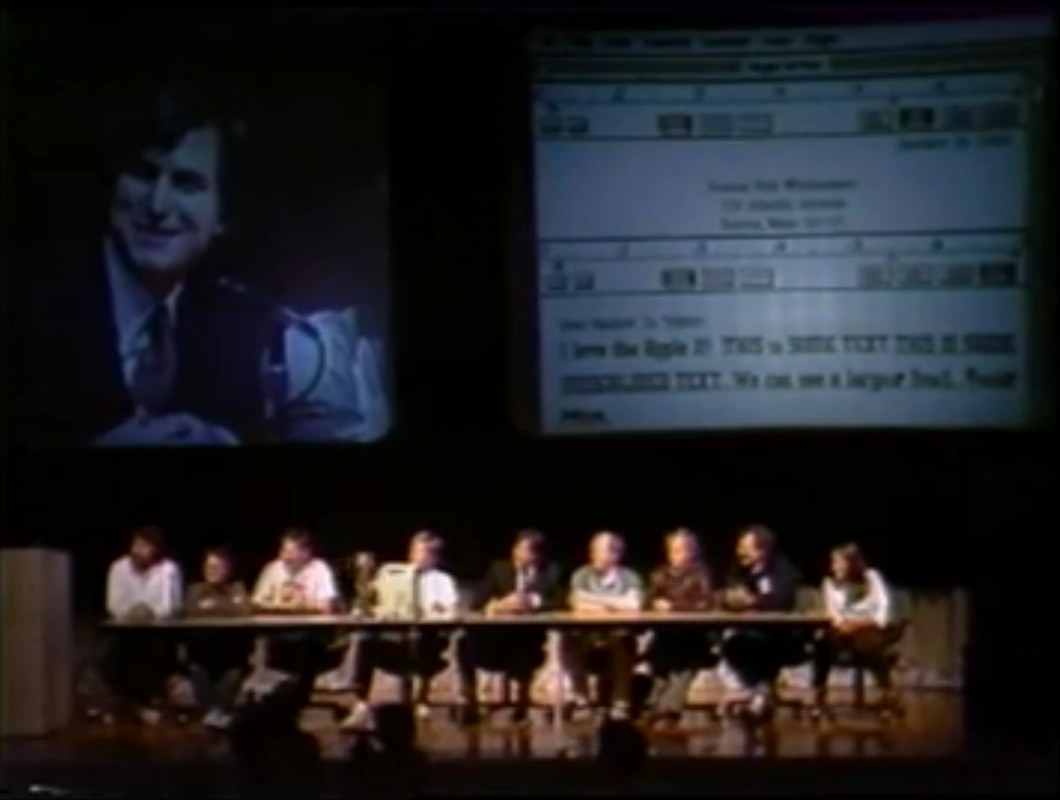The history of messaging, and where it’s going
There are in my view four main phases in the history of online and mobile messaging. The first phase included e-mail and to some extent real-time messaging (in the form of chat rooms), but was strictly within walled gardens. You could only communicate with others using the same proprietary service provider (America Online, Compuserve, Delphi, etc.). The second phase was the beginning of interconnected systems and the Internet. E-mail no longer stayed on a single server, but could go between companies. Real-time messaging, switched from chats that people had to join, to curated lists of friends, the buddy list, which dictated who you could chat with and allowed people to know when you were available for chat. To chat with someone you needed to know their username (or be able to find it in a directory). In some implementations, such as MSN Messenger, the other user had to approve you being able to see if they were online, but in others like AIM, you could see who was online as long as you knew their username (assuming they had not blocked you). The third phase was the emergence of text messaging on cell phones. This includes SMS, which spread initially…
UX Note: Apple needs to get in sync
Apple IIe (Wikimedia Commons) The first computer I used was an Apple II in a computer lab in my elementary school. My first computer was an Apple IIe. I am forever thankful to my father who convinced me that replacing it with a Mac SE was the smarter move than getting the Apple IIgs. Except for a few companies that had me working on Windows machines, and some development on Linux boxes, I've been using Macs ever since. I've been on the iPhone since the first one in 2007. I love Apple and most of their products (the Mac Portable should never have come out, and the Pippin...let's not go there). I love that their products 'just work' and are consistent in design (due to their 'Human Interface Guidelines'). That's why it pains me when they don't work. Some things should work better, and just don't (and don't get fixed). In particular, I've found that Apple has a problem keeping things in sync with their iTunes/iCloud services. Let me just preface this with saying technically there are no iTunes accounts and iCloud accounts, there are really just Apple IDs that are associated with iTunes or iCloud. I understand this, but…
The first public introduction of the Macintosh was in Boston
In 1984, Apple famously announced the Macintosh on January 22 in the iconic Ridley Scott directed '1984' commercial during the Superbowl. Not well known is that the ad was actually shown a few months earlier to a group of computer dealers behind closed doors. The ad announced the imminent launch of the Mac on January 24th, 1984.The Mac was indeed introduced on the 24th, at the Apple Annual Shareholder's Meeting, and was to become available publicly hours later. Video of the shareholder's meeting was found on a Betamax tape in 2004, and released online in 2005. For a bit of history behind what happens in that video, see Andy Hertzfeld's great description on his folklore.org site called The Times They Are A-Changin'. The initial introduction was to Apple's shareholders who went to Cupertino, CA, and was not open to the public. The first public introduction of the Macintosh was actually six days later, across the country in Boston, MA. It took place at a meeting of the Boston Computer Society (BCS). BCS was run by a 20-year old college student, Jonathan Rotenberg, who had founded the society in 1977 at the age of 13. At its peak, it was the largest…
Renting a Bicycle in Tel Aviv
Yesterday I spent some time at the Tel Aviv Port, a formerly run-down area that has been turned into a super-trendy nice-restauarant upscale-shopping area of the city. While having lunch at a restaurant facing the water, I did something I occasionally do when I'm in new place, I glanced at the 'Near Me' tab in the App Store on my phone. As is common, many of the apps that showed up were transportation related. This included an app called TeloBike (iTunes link), which provided information on the locations of bike rental stations in Tel Aviv, including how many bikes were available at each station. It worked pretty well, and operated in both Hebrew and English. The data for this app presumably comes from the site run by the city of Tel Aviv for bike rentals, Tel-O-Fun. The site itself is not bad, provides a map of all the locations with the number of bikes available, and operates in Hebrew, Arabic, English, French, and Russian. The app Telobike itself is not from the city, or connected to the site directly, but was created by an independent developer. Why doesn't the city have a mobile app itself? I'm not sure. More on that in a second.…
The end of paper?

Do the success of tablets signal the end of paper? I think we can never truly understand understand what the future will hold, even if we can predict its trajectory. Ray Kurzweil speaks often about how technology grows exponentially. Not only is technology progressing quickly, but the rate at which it is progressing is increasing. This is counter to how many people perceive it. This is best outlined in Kurzweil's paper The Law of Accelerating Returns. I bring this up because he posits that the 100 years of this century will see the equivalent of 20,000 years of growth at the growth rate at the turn of the century. In other words, even at the growth rate that existed in 2000, it would take 20,000 years to reach the equivalent growth if kept constant, compared to the accelerating growth that really exists and will occur in this century. So how will we consume the written word in 10 years? in 50 years? in 100 years? Can you perceive what the equivalent of 20,000 years of progresss will mean? One can argue now about the tactile difference in reading a paper book versus reading on an iPad, but what about…
A new blog
I've blogged in the past on a variety of topics, but not on technology and business, which is odd considering I've been working in tech for over 20 years. This blog at trauring.org, and the accompanying Twitter account trauring are an attempt to put out my opinions on technology and working in startups. I'm currently starting a new project, so as that progresses and becomes more public, I'll be posting about that here as well. Philip Trauring



